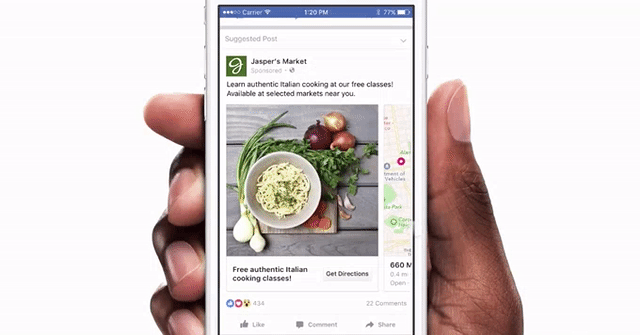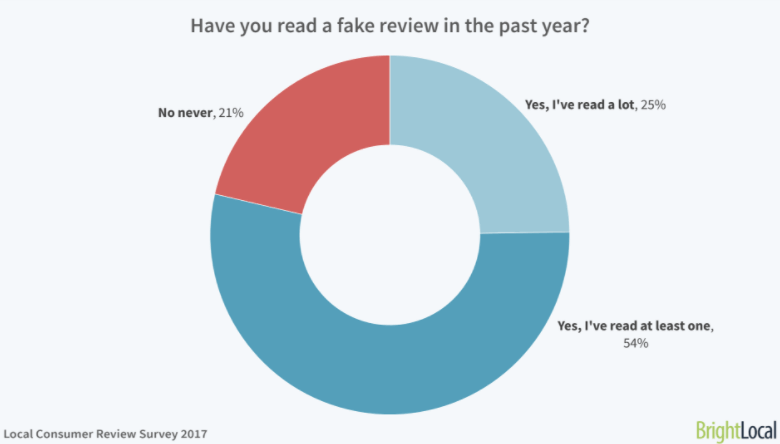With the Facebook data scandal and a telling perspective on fake reviews, there’s been some spicy drama developing in the marketing world this week. Get ready: The Content Marketing Weekly is here to give you the scoop.
Plus, we’re ending this week on a lighter note with GIFs. Happy Friday!
Let’s get to the details:
Facebook Data Scandal: Here’s What Advertisers Are Asking the Social Network About Cambridge Analytica
When the Cambridge Analytica data scandal hit the news, Facebook wasn’t exactly quick to respond. The data firm apparently accessed information from 50 million Facebook users without their knowledge or consent, leaving the social giant in an unfortunate limelight.
Facebook CEO Mark Zuckerberg did eventually speak up, apologizing for the mistake and ensuring users of the platform’s commitment to privacy and security.
To get some inside answers about what this crisis means for marketers and advertisers, Fortune went straight to the source to gain insight from a conversation with Facebook’s Vice President of Global Marketing Solutions, Carolyn Everson.
According to Everson, advertisers and marketers are most worried about how users will perceive and react to the crisis. Facebook’s next steps will be to earn users’ trust back.
“Consumers are going to require, and I think deserve, consistent communication from us on this and demonstration of how serious we take this,” Everson said.
Everson revealed more information about potential changes in the platform’s business model, which she says is unlikely.
“I think what you’ll see is just a continued move towards more transparency and more [consumer] control,” she said.
Another big concern for advertisers is whether their company used Cambridge Analytica, which is information that Facebook doesn’t have direct access to.
Read the rest of this insider interview here.
Advertisers Didn’t Leave YouTube, and They Won’t Leave Facebook
In response to the data scandal, everyone’s been sharing their perspective. This one from Marketing Land suggests the controversy will blow over soon.
While some advertisers are considering leaving the platform, this thought piece argues that as long as the ads are successful, brands are going to keep paying for them.

This crisis looks pretty similar to last year’s YouTube scandal when Google admitted that extremist groups were accepted into the YouTube Partner Program. Yet brands didn’t go anywhere.
Why? YouTube and Google were quick to fix the problem.
As long as Facebook does the same, advertisers and marketers probably aren’t going anywhere. According to this perspective, there are two things that would make them leave: user exodus or performance-crippling regulation.
We’ll have to wait to see how Facebook and investors continue to respond, but from the sounds of Zuckerberg and Everson’s interviews, the social media platform is definitely working to increase privacy efforts and keep users on the platform.
Check out the full article here.
Why We Need to Fight Fake Reviews
You don’t trust fake news. Why should your customers trust fake reviews?
Many consumers rely on online reviews when making purchasing decisions – anything from hotel reservations to organic shampoo.
Authenticity is number one for consumers seeking online reviews. They look for credible sources and many will sniff out the untrustworthy ones immediately. Almost 80 percent of users recognized reading at least one fake review in the past year.

So what does that mean for your brand? Resist the urge to fabricate positive reviews about your company, as any boost in engagement will be short lived.
Consumers want to invest in brands they trust. Don’t lose the opportunity to gain a loyal customer by giving them a reason not to trust you.
Get the full explanation for why you should stand up to fake content here.
That GIF You Just Shared? It Might Actually Be An Ad
More than the perfect response to internal work emails and personal text messages, GIFs are a powerful tool for marketers.
These short, looping videos somehow have the ability to capture our reactions in a quick, funny and relevant visual.

The magic of GIFs for marketers is that they have far more shareability than a traditional ad.
The fun and flirty GIF of Millie Bobby Brown above is actually part of a Converse campaign. It’s also the perfect response to a friend who texted you “Let’s get manis AND pedis this weekend” or a coworker or who just messaged you “Hey, drinks after work?”
According to Adweek, a brand rep for Converse explained the reasoning for using GIFs in an email that said “Because they are…fun, fun, fun” – with a GIF embedded in the middle of the sentence, of course.
Rather than a full narrative, the key to a great GIF is its ability to express a mood or feeling. When brands succeed in doing that, they create highly relevant and shareable content.
This makes GIFs perfect for engaging users on social media, providing them with content that makes them laugh and smile. Plus, they’re likely to share it with their network and keep coming back to your brand for more.
Check out the full story on GIFs here.
There you have it. We’ll leave you with this to start your weekend:






